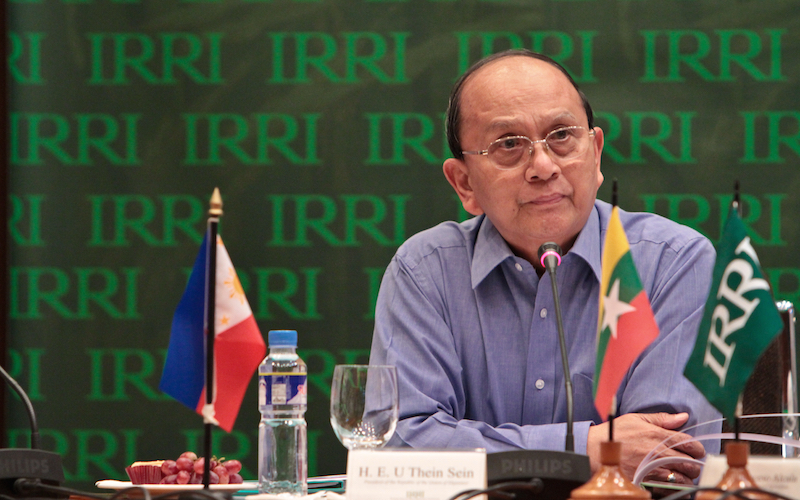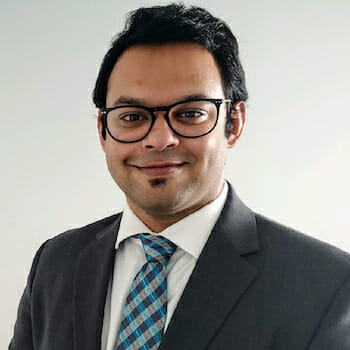
Burma: Obama’s Latest Gamble
During his latest trip to Asia, U.S. President Barack Obama quietly took a gamble with his statement on Burma’s transition to normalcy. In a joint news conference with the Burmese opposition leader, Daw Aung San Suu Kyi, Obama graded Burma’s transition “by no means complete or irreversible.” It is not complete; true. At the same time, it cannot be said with certainty that the entire process has not been placed in reverse when taking into account the Burmese regime’s frustratingly lackluster performance in ushering in new days.
Belatedly, the Obama administration may have come to terms with this uncomfortable reality as domestic and international outcries mount. This explains why the President appears to have been restrained in rhetoric vis-à-vis the future of a once pariah state situated in a strategically important region. Meanwhile Burma, also known as Myanmar, has gained what it has long desired: international recognition of its quasi-civilian government that predominantly consists of military cronies, the easement of crippling sanctions, and a flow of foreign direct investments.
Albeit the give-and-take tradeoff between Washington and Naypyidaw has thus far taken a disturbing tilt toward the latter, Burma has yet to reap the benefits from a rare opportunity that the United States has to offer, thanks to former Secretary of State Hillary Clinton’s ambitious pivot to Asia. All these concessions can be thoroughly reevaluated in case the transition teeters. This message should be articulated unambiguously to the regime that has been suffering from a bout of recklessness since the Obama administration has prematurely started to tout Burma’s opening to the West a success story.
Here lies the confusion. Conventional wisdom says Burma’s government, widely ostracized by the international community due to its aberrant way of ruling the country, should cherish the gesture of friendship that the West has extended. Surprisingly, it seems to be the other way around.
The Obama administration has behaved in a way as if it repaid a moral debt by lifting sanctions off Burma. This is evident from Barack Obama’s panegyric on Burma during his foreign policy address at West Point earlier this year. One step ahead is Mrs. Clinton who, in her latest book, dedicated an entire chapter on the Burmese opposition lady and the generals.Unfortunately, this sends Burma a wrong signal. The military junta takes it as a culmination of the nominal reform it has agreed to make.
This is a far cry from reality. In fact, the litany of complaints against Thein Sein’s administration is lengthy and horrendous. It is anticipated that democracy might prevail. Sadly, a coterie of writers has crafted the nation’s constitution in a fashion that chokes progression to democracy at an early stage. Even President Obama finds it puzzling: “I don’t understand a provision that would bar somebody from running for president because of who their children are,” uttered the U.S. President in the press briefing adding that “this doesn’t make sense to me.”
On the contrary, it seems to make complete sense to the Burmese leadership as they yet again have reiterated their unswerving loyalty to the sanctity of the constitution. “We cannot perform constitutional amendments straight after the referendum,” said a top Burmese leader a few days after the U.S. president left the country. This should not come as a surprise. The to-do-list of the Burmese government is in all but an oxymoronic record of accomplishments. It has started to release political dissidents on conditions, but muzzles journalists. The ceasefire agreement between the government and a number of separatist groups is precarious. The government military forces sporadically attack the rebels. Even worse, the Burmese police force appears to function as a proxy to the military. Last year police fired a military-issue white phosphorus bomb to disperse peaceful protesters at a Chinese-owned copper mine. Those severely wounded included several Buddhist monks.
However, in the western Burmese state of Arakan, Buddhists and the state force are on good terms as they share a common goal: evicting the Rohingyas. Since the annulment of their right to claim Burmese citizenships in a constitutional amendment in 1982, Rohingya people have become the prime target of state-sponsored terror. New York-based Human Rights Watch has labeled it the Burmese government’s “ethnic cleansing,” while another report published earlier this year claims the Burmese treatment of Rohingya people as a “crime against humanity.” The way the Burmese authority treats, what the UN calls, “one of the world’s most persecuted peoples” can only match its brutality with the Nazis. “Ugly ogres” is the Burmese equivalent term for Nazi Germany’s Untermensch or subhuman.
Astonishingly, the only person who can come forward to lay the groundwork for a national reconciliation remains silent. During her Europe tour, Aung San Suu Kyi repudiated the claims put by several human rights groups and provided an alternative theory- “the fear is what is leading to all this trouble.” Furthermore, she stopped short of accusing the global Muslim power, which is “very great,” of being behind the ongoing crisis in Burma. Putting aside the Rohingyas, Suu Kyi’s nonchalance on the government’s iron-fisted policy to clamp down on the other separatists groups is also somewhat disturbing. Her public stance in response to government brutality against the Kachin people was so perplexing that it prompted 23 local NGOs to issue her a letter of protest.
Suu Kyi’s own life resembles a tragic story of denial of human rights. As an individual, she was unjustly forced to lead a secluded life, having been under house arrest for 15 years. She could not even see her husband before he died. Her two sons have been deprived of motherly love. Yet her decision to put her family second to the fight for Burma’s democracy occasionally comes under fire. Skeptics point out that the 69-year-old leader of the NLD (National League for Democracy) party has barely done anything to groom future leaders. “She can follow the footstep of Sonia Gandhi,” a student currently studying abroad who prefers to remain unnamed told me. In the aftermath of the national election in 2004, the leader of the Indian Congress party chose Manmohan Singh to take the helm of the government.
Whether or not Suu Kyi will make a Gandhi-like sacrifice is superseded by the question of whether she will ever get the opportunity. The reforms taken by Thein Sein’s government do not suggest that the military has any plans to remain out of power. It is high time the Obama administration reined in expectations and recalibrated its Burma policy. Most importantly, Washington should be blunt in confronting Burma in two areas: treatment of its minorities and the military. Should Naypyidaw fail to check the outflow of refugees to neighboring countries and does not abandon its ambition to join the arms race in the uncharted waters of the Indian Ocean, there will be huge regional repercussions. In addition, extra pressure must be put in place to ensure Burma forsakes the company of its longtime ally, North Korea.
Some progress has been made. Nevertheless, there are few signs that the Burmese government will push forward given the level of recalcitrance and reluctance it has displayed. This in turn gives rise to further speculation that the transition process may end up as cosmetic. To put it simply, the bet the Obama administration made on Burma, is at risk.
